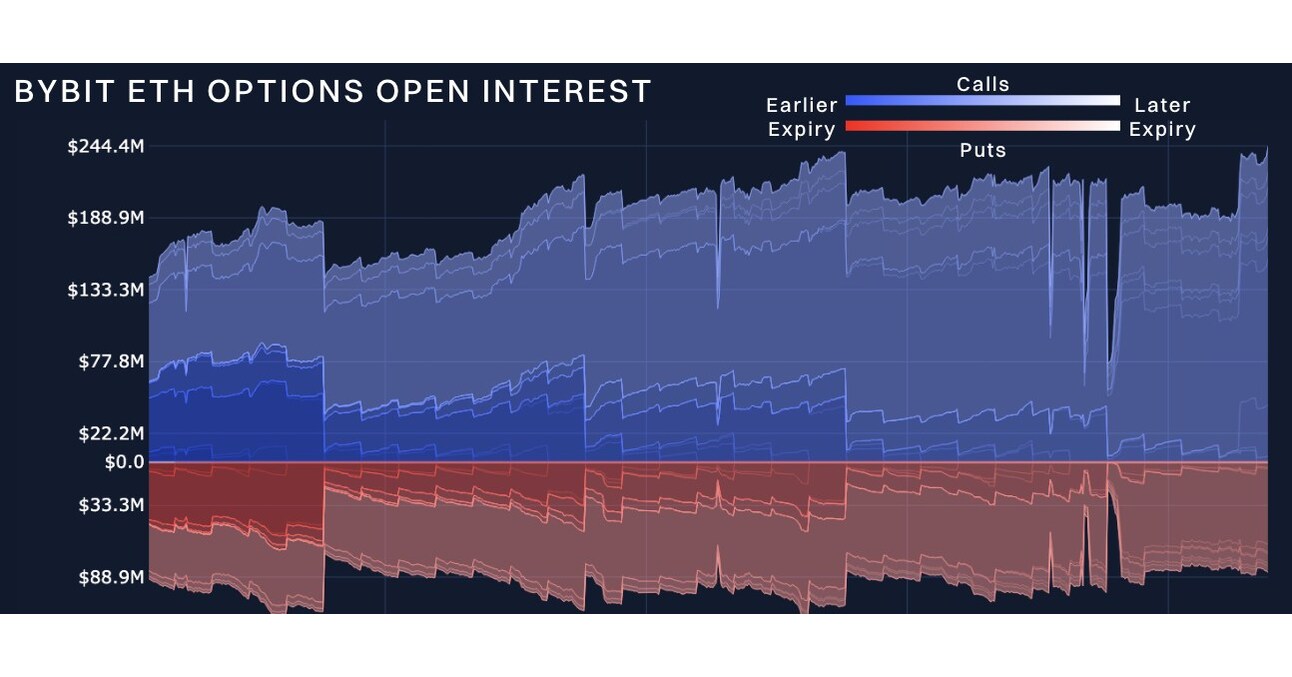Crypto
Why DeSantis May Be The Most Pro Bitcoin U.S. Presidential Candidate

TOPSHOT – Republican gubernatorial candidate for Florida Ron DeSantis with his wife Casey DeSantis … [+]
American cryptocurrency supporters are looking for a presidential candidate who will prioritize fintech policies and Florida Gov. Ron DeSantis is most poised to fill that void. DeSantis said the Florida should allow businesses to pay taxes directly in cryptocurrency, back in March 2022, and more recently clarified his stark opposition to Central Bank Digital Currencies, the antithesis of decentralized bitcoin and likeminded networks.
As cryptocurrency rises in popularity, now a $3 trillion market, so has interest in the regulatory landscape surrounding digital assets. And DeSantis isn’t the only politician looking to use an opinionated stance on cryptocurrency issues to attract voter support. In January 2023, Congress created the Subcommittee on Digital Assets, Financial Technology and Inclusion, under the House Financial Services Committee. Chaired by Rep. French Hill (R-AR), the committee is tasked with “providing clear rules of the road among federal regulators for the digital asset ecosystem, developing policies that promote financial technology to reach under served communities, and identifying best practices and policies that continue to strengthen diversity and inclusion in the digital asset ecosystem.” Then President Biden directed the Federal Reserve to begin developing a CBDC, which DeSantis criticized.
In March, the Treasury formed a working group to begin the process to create a U.S.-issued CBDC. This comes as the European Union adopts its own regulations framework. The global race to dominate the crypto economy is on. While some Republicans in Congress look at ways to encourage cryptocurrency investment in the private sector, the Republican presidential field is split on the issue.
In contrast to DeSantis, Nikki Haley and Mike Pence have been notably silent on cryptocurrency issues. In recent weeks, Vivek Ramaswamy, who made a name for himself in conservative media by commenting on cutting edge financial issues like Environmental, Social, and Governance business issues, has begun to engage in the cryptocurrency debate via his podcast. Like DeSantis, Ramaswamy has taken a strong stance against CBDC experiments.
Much like President Biden, who repeatedly criticized “wealthy” crypto investors, former President Donald Trump has taken a hard stance against the cryptocurrency industry. Trump stated in a 2019 tweet that he is “not a fan of bitcoin and other cryptocurrencies.” However, in contrast to both Biden and DeSantis, Trump has been silent on the issue of CBDCs. So far, DeSantis may be the most bitcoin-friendly candidate out of all the mainstream presidential contenders.
DeSantis has been a vocal supporter of cryptocurrency. In May 2021, he signed legislation defining virtual currency in state statute and clarifying that individuals can trade cryptocurrency without a license. In announcing his budget proposal in for 2022, which included blockchain funding for state agencies, he said “our view as the state government is this is something that we welcome and we want to make sure that the state government is crypto-friendly.” A few months later, he announced that Florida was working on a process to accept business tax payments in a variety of cryptocurrencies.
Further, DeSantis signed legislation in March to prohibit CBDC experiments in Florida. DeSantis has said in multiple public statements that he believes CBDCs are not only a direct attack on the cryptocurrency industry, but also an attempt to centralize all financial transactions with unnecessary surveillance, giving the federal government the authority to track and prohibit lawful purchases. This stance follows the same principles as recent legislation passed in Florida relating to ESG, in which the state prohibited banks from using unique codes to track firearms purchases made with a credit or debit card.
Although DeSantis has not mentioned bitcoin specifically in relation to his upcoming presidential campaign, it appears cryptocurrency supporters may be considered a core part of his platform. During the anti-CBDC bill signing ceremony in March, DeSantis affirmed the importance of decentralized cryptocurrency networks, like the Bitcoin blockchain. In referring to the Biden administration, DeSantis said “they don’t like crypto because they can’t control crypto, so they want to put everything in a Central Bank Digital Currency.”
How much cryptocurrency will play in the 2024 election cycle is yet to be seen. For now, DeSantis is the leading candidate who appears to value decentralization and the right to self-custody, both hardline issues among cryptocurrency supporters.

Crypto
Russian Companies Reportedly Using Crypto for International Payments | PYMNTS.com

Russian businesses are reportedly using bitcoin and other cryptocurrencies to make international payments.
It’s a trend that comes in the wake of legislative changes that permitted these types of payments to get around western sanctions, Reuters reported Tuesday (Dec. 26), citing comments from Russian Finance Minister Anton Siluanov.
As the report noted, the sanctions — issued following Russia’s invasion of Ukraine in 2022 — have made it tougher for Russia to trade with partners like China and Turkey. But this year, Russia began allowing crypto for foreign trades, and is working on legalizing the mining of crypto such as bitcoin.
“As part of the experimental regime, it is possible to use bitcoins, which we had mined here in Russia (in foreign trade transactions),” Siluanov told Russia 24 television channel.
“Such transactions are already occurring. We believe they should be expanded and developed further. I am confident this will happen next year,” he said, adding that using digital currencies to make international payments represent the future.
PYMNTS explored this idea earlier this week in a report on events in the cryptocurrency/blockchain world in the past year.
“Cross-border payments, historically plagued by high fees and slow transaction times, underwent a significant transformation in 2024,” that report said. “Blockchain technology emerged as a key enabler, offering transparency, speed and cost efficiency.”
Stablecoins play a key role, PYMNTS added, letting businesses bypass traditional correspondent banking networks and settle transactions almost instantly.
“Blockchain technology and public blockchains in particular, are opening up a number of new use cases, one of which is to transfer value — such as remittances — from one country to another,” Raj Dhamodharan, executive vice president, blockchain and digital assets at Mastercard, told PYMNTS.
Research by PYMNTS Intelligence has found that cryptocurrency use in making cross-border payments could be the winning use case that the sector has been searching for. The research shows that blockchain-based cross-border solutions, especially stablecoins, are being increasingly used by firms looking for better ways to transact and expand internationally.
“Blockchain solutions and stablecoins — I don’t like to use the term crypto because this is more about FinTech — they’ve found product-market fit in cross-border payments,” Sheraz Shere, general manager of payments and commerce at Solana Foundation, said in an interview here earlier this year. “You get the disintermediation, you get the speed, you get the transparency, you get extremely low cost.”
Crypto
Markets Show Resilience Ahead of End-of-Year Options Expirations: Bybit x Block Scholes Crypto Derivatives Report

DUBAI, UAE, Dec. 26, 2024 /PRNewswire/ — Bybit, the world’s second-largest cryptocurrency exchange by trading volume, released the latest Crypto Derivatives Analytics Report in collaboration with Block Scholes, highlighting the muted market volatility despite major options expirations on Friday. BTC and ETH’s realized volatility has increased, but short-term options haven’t adjusted to this change. This indicates that while spot prices are fluctuating, the options market is not fully reacting to these shifts, although BTC and ETH volumes have displayed slightly different patterns.
Sources: Bybit, Block Scholes
With more than $525 million in BTC and ETH options contracts expiring on Dec 27, 2024’s end-of-year options expiration looks set to be one of the biggest yet, yet expectations for volatility have remained subdued. The report highlights an unusual inversion in ETH’s volatility structure, but BTC has not mirrored the reaction. Additionally, a change in funding rates—sometimes turning negative as spot prices drop—signals a new market phase. Notably, BTC’s volatility structure has been less responsive to changes in spot prices, whereas ETH’s short-term options are exhibiting more noticeable fluctuations.
Key Findings:
BTC Options Expirations:
In the past month, BTC’s realized volatility has been higher than implied volatility on three occasions, each time reaching a relatively calm equilibrium. Open interest in BTC options remains high, contributing to potential increased volatility as we near the end of the year. Around $360 million worth of BTC options (both puts and calls) are set to expire soon, which can affect price movement.
ETH Options: Calls Dominate
Despite a mid-week inversion, ETH’s volatility term structure has flattened, maintaining levels similar to those seen over the past month. In the final week of 2024, calls overwhelmed puts in open interest in ETH options, although market movements and trading activities are more on the put side.
Access the Full Report:
Gain deeper insights and explore the potential impacts on your crypto trading strategies by downloading the full report here: Bybit X Block Scholes Crypto Derivatives Analytics Report (Dec 24, 2024)
#Bybit / #BybitResearch
About Bybit
Bybit is the world’s second-largest cryptocurrency exchange by trading volume, serving a global community of over 60 million users. Founded in 2018, Bybit is redefining openness in the decentralized world by creating a simpler, open and equal ecosystem for everyone. With a strong focus on Web3, Bybit partners strategically with leading blockchain protocols to provide robust infrastructure and drive on-chain innovation. Renowned for its secure custody, diverse marketplaces, intuitive user experience, and advanced blockchain tools, Bybit bridges the gap between TradFi and DeFi, empowering builders, creators, and enthusiasts to unlock the full potential of Web3. Discover the future of decentralized finance at Bybit.com.
For media inquiries, please contact: [email protected]
For more information, please visit: https://www.bybit.com
For updates, please follow: Bybit’s Communities and Social Media
Discord | Facebook | Instagram | LinkedIn | Reddit | Telegram | TikTok | X | Youtube
Photo – https://mma.prnewswire.com/media/2587821/Sources_Bybit_Block_Scholes.jpg
Logo – https://mma.prnewswire.com/media/2267288/Logo.jpg
Crypto
WSJ “Trump's Emphasis on Cryptocurrency and AI Highlights Need for Renewable Energy”

There is a prospect that the renewable energy industry could be revitalized due to President-elect Donald Trump’s proactive stance on cryptocurrency and artificial intelligence (AI).
On the 25th (local time), the Wall Street Journal (WSJ) highlighted the power consumption involved in AI and cryptocurrency mining businesses, predicting a need for more power sources. Senator Kevin Cramer told the Wall Street Journal, “We don’t have enough electricity for servers used in AI or cryptocurrency,” emphasizing the need for as much energy as possible, including not only fossil fuels but also renewable energy.
President-elect Trump has so far taken a negative stance on the ‘climate crisis’ and its solution, renewable energy, but it is explained that this position could change. The media noted, “Trump has previously criticized electric vehicles, but he shifted his stance after getting closer to Elon Musk, CEO of Tesla. Trump’s stance on renewable energy could also be relaxed.”
-
/cdn.vox-cdn.com/uploads/chorus_asset/file/24924653/236780_Google_AntiTrust_Trial_Custom_Art_CVirginia__0003_1.png)
/cdn.vox-cdn.com/uploads/chorus_asset/file/24924653/236780_Google_AntiTrust_Trial_Custom_Art_CVirginia__0003_1.png) Technology6 days ago
Technology6 days agoGoogle’s counteroffer to the government trying to break it up is unbundling Android apps
-

 News7 days ago
News7 days agoNovo Nordisk shares tumble as weight-loss drug trial data disappoints
-

 Politics7 days ago
Politics7 days agoIllegal immigrant sexually abused child in the U.S. after being removed from the country five times
-

 Entertainment1 week ago
Entertainment1 week ago'It's a little holiday gift': Inside the Weeknd's free Santa Monica show for his biggest fans
-

 Lifestyle1 week ago
Lifestyle1 week agoThink you can't dance? Get up and try these tips in our comic. We dare you!
-
/cdn.vox-cdn.com/uploads/chorus_asset/file/25672934/Metaphor_Key_Art_Horizontal.png)
/cdn.vox-cdn.com/uploads/chorus_asset/file/25672934/Metaphor_Key_Art_Horizontal.png) Technology2 days ago
Technology2 days agoThere’s a reason Metaphor: ReFantanzio’s battle music sounds as cool as it does
-

 Technology1 week ago
Technology1 week agoFox News AI Newsletter: OpenAI responds to Elon Musk's lawsuit
-

 News3 days ago
News3 days agoFrance’s new premier selects Eric Lombard as finance minister




/cdn.vox-cdn.com/uploads/chorus_asset/file/25805991/2191410214.jpg)












